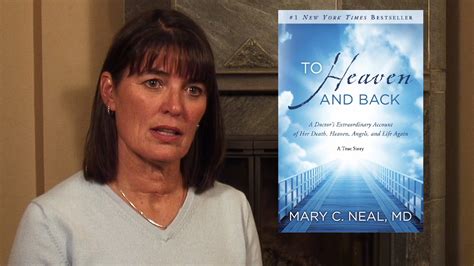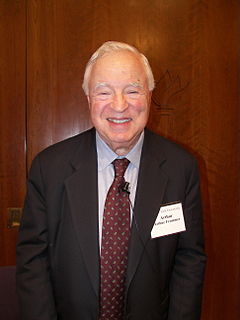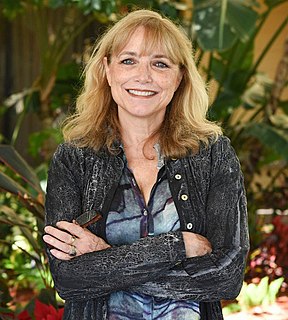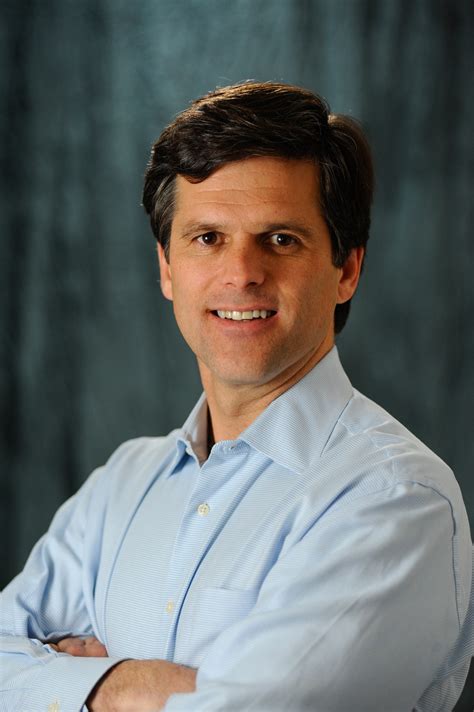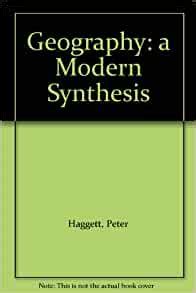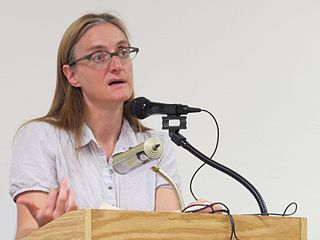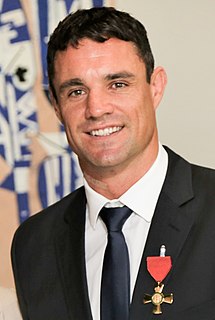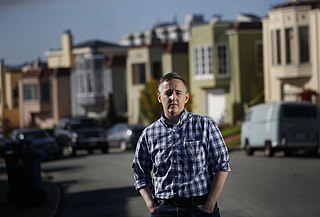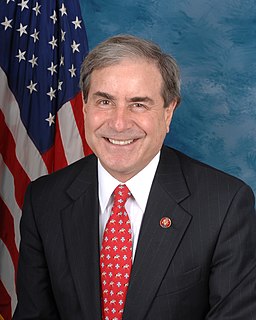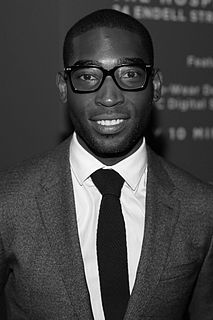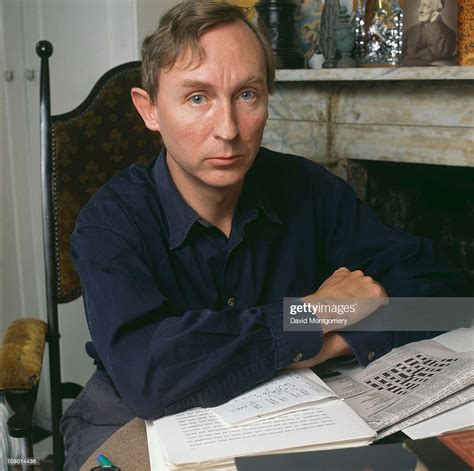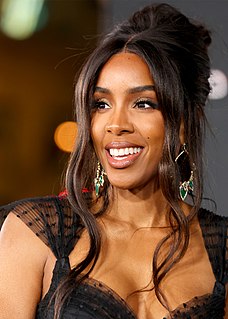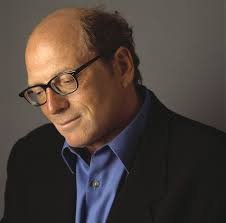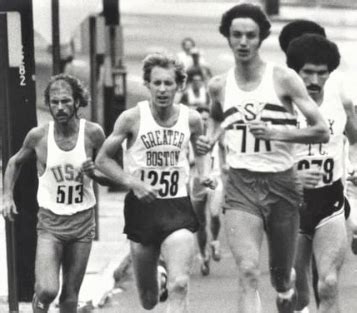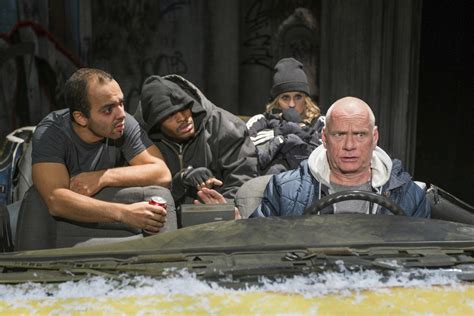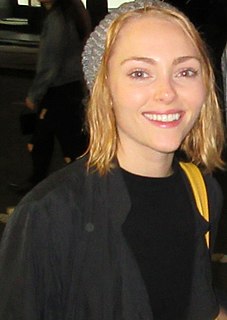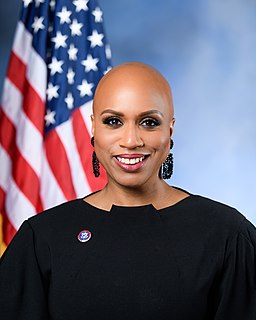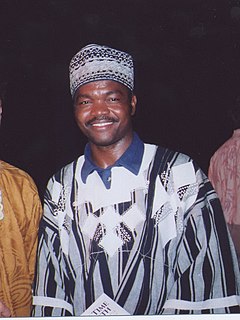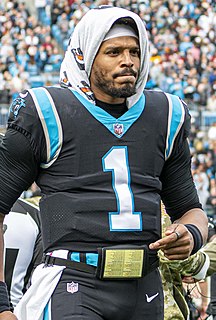Top 1029 Urban Quotes & Sayings - Page 15
Explore popular Urban quotes.
Last updated on November 25, 2024.
What I find more remarkable, however, is how readily many people in our society believe outlandish and unsubstantiated urban myths and conspiracies (Pop Rocks and Coke, JFK assassination, AIDS is man-made, etc.), yet disregard thousands of personal and consistent testimonies of miracles and near-death experiences from people throughout all cultures and religions.
In all of America, there is no more promising an urban area for revitalization than your own Over-the-Rhine. When I look at that remarkably untouched, expansive section of architecturally uniform structures, unmarred by clashing modern structures, I see in my mind the possibility for a revived district that literally could rival similar prosperous and heavily visited areas.
We are contemporary citizens living in a technological world. Swimming in crosscultural waters can be dangerous, and if you are honest you can't stay there very long. Sooner or later you have to look at your own reflection and decide what to do with yourself. We are urban people. We make periodic pilgrimages to the country. . . . If we align ourselves with the spirit of place we will find humility fused with joy. The land holds stories.
I've always enjoyed searching for clothes. I like thrift stores and vintage stuff, and not so much going to Urban Outfitters. What got me interested is having to choose dresses for the carpet, and doing a lot of shoots with really cool clothes. I've gotten to try on a lot of things that I've liked, and some things that I haven't.
You know, I don't really understand a suburban environment. I want to be out in the woods, I want to be where it's wild, I want to wake up and hear birds, I want to walk outside and see a gaggle of turkeys bouncing across my lawn - I want to be someplace like that - or I want to be right in the middle of an urban environment.
Kids coming from very difficult economic circumstances in urban areas are in some ways discriminated against in ways that are similar to the way people with intellectual disabilities are discriminated against. People are afraid of them. People sometimes assume that they don't have skills, gifts or abilities to contribute.
The Dallas model, prominent in the South and Southwest, sees a growing population as a sign of urban health. Cities liberally permit housing construction to accommodate new residents. The Los Angeles model, common on the West Coast and in the Northeast Corridor, discourages growth by limiting new housing.
The Place of Religion in Chicago is a clearly written account of a little-studied aspect of American landscape. Based on unique field surveys and supported by photographs, tables, and beautifully crafted maps, the book will form a lasting contribution to our understanding of an overlooked element of the American urban scene: the religious landscape of a major metropolis.
I'm trying to discover - invent, I suppose - an architecture, and forms of urban planning, that do something of the same thing in a contemporary way. I started out trying to create buildings that would sparkle like isolated jewels; now I want them to connect, to form a new kind of landscape, to flow together with contemporary cities and the lives of their peoples.
I always thought the point of life was something richer than that. Something full of great tragedy or comedy, reversal of fortune, ecstasy, that kind of thing. But no, contemporary urban theorists seem satisfied with the merely livable, which always sounds to me like the merely survivable, the not so bad.
Urban farming appeals to people on the right and the left. People have different reasons for getting into it. Some people are like doomsdayers, they think there's going to be some horrible catastrophe and how will we survive? And then there's people that are more like, "We want to be socialists and have communal chicken coops." It really runs the whole gamut.
In his study of Atlanta over the last 60 years, Kevin Kruse convincingly describes the critical connections between race, Sun Belt suburbanization, the rise of the new Republican majority. White Flight is a powerful and compelling book that should be read by anyone interested in modern American politics and post-World War II urban history.
Unfortunately, we have a 50% unemployment rate among our urban youth of color. It's not about making green jobs more attractive. It's about making them more available. And that requires Congress passing legislation that will give a real break to the people who want to introduce new technologies to the American marketplace.
I wonder, What is it to be human? Especially now that we are so urban. How do we remember our connection with place? What is the umbilical cord that roots us to that primal, instinctive, erotic place? Every time I walk to the edge of this continent and feel the sand beneath my feet, feel the seafoam move up my body, I think, "Ah, yes, evolution." It's there, we just forget.
If you paint a building shocking pink, that has no scale, it is just a huge mistake, but it's not in the scale of the city to have things like that. You know. So, not only because it's not appropriate, not only because it's offensive to the environment, I mean but among them also because that quantity of that color in the urban scale, is out of scale.
Modern elites live in bubbles of liberal affluence like Ann Arbor, Brookline, the Upper West Side, Palo Alto, or Chevy Chase. These places used to have impoverished neighborhoods nearby, but the poor people got chased out by young singles living in group homes, hipsters, and urban homesteading gay couples.
There are caste systems in American cities: Many are marginalized to the edges of urban centers due to real estate costs; price tags seem to lurk around human encounters; there's a cult of overwork in the middle class; workers at your local manicurist, your local fast casual restaurant, are exploited.
Instability mostly comes from the interface between the fact that the banks (or shadow banks) can create credit, money, and purchasing power in infinite quantities if we don't constrain them, and the fact that credit is primarily created to fund the purchase of urban real estate and land, which is somewhat fixed in supply.
Daily life is a comprimised blend of posturing for the sake of role-playing and of varying degrees of self-revelation. Under stressful conditions even the "true" self cannot be precisely defined, as Erving Goffman observes. ...Little wonder that the identity crisis is a major source of modern neuroticism, and that the urban middle class aches for a return to a simpler existence.
What I also discovered was that, during the War, the whole of Europe had become a fortress. And thus I saw to what extent an immense territory, a whole continent, had effectively been reorganized into one city, and just like the cities of old. From that moment on, I became more interested in urban matters, in logistics, in the organisation of transport, in maintenance and supplies.
Another agricultural trend of growing concern is the increased nutrient content of coastal waters resulting from fertilizer runoff in agricultural regions. Augmented by urban sewage discharge in some situations, this results in huge algal blooms, which, as they die and decay, deplete the oxygen content in the water, leading to the death of the fish.
I have always been interested in crafting films that use long, static urban landscape shots as a way of manipulating the emotions of the viewer and forcing them to slow down, which I think simultaneously makes them more vulnerable as spectators, and also puts them in a position of being more than just spectators.
Walls are very important when you`re separating two urban areas where if you`re actually able to get over the border you can probably get into the underground network in about 30 seconds. But when you`re out in the middle of the desert, it makes no sense because you have border security people have up to a day to apprehend people who are crossing illegally.
There couldn't possibly be a more label-driven industry than acting, seeing as every audition comes with a character breakdown: 'Beautiful, sassy, Latina, 20s'; 'African American, urban, pretty, early 30s'; 'Caucasian, blonde, modern girl next door'. Every role has a label; every casting is for something specific.
Dizzee's just my childhood hero. He's definitely the inspiration. He's got himself to a very good place. He's defied the expectations of what British black urban music was like. He was the first person who made the rest of Britain realise it wasn't just a one-album-type situation. You've got to take your hat off to somebody like that.
In the 18th century, James Hargreaves invented the Spinning Jenny, and Richard Arkwright pioneered the water-propelled spinning frame which led to the mass production of cotton. This was truly revolutionary. The cotton manufacturers created a whole new class of people - the urban proletariat. The structure of society itself would never be the same.
The gradual depletion of the ozone layer and the related "greenhouse effect" has now reached crisis proportions as a consequence of industrial growth, massive urban concentrations and vastly increased energy needs. Industrial waste, the burning of fossil fuels, unrestricted deforestation, the use of certain types of herbicides, coolants and propellants: all of these are known to harm the atmosphere and environment.
In architecture it isn't enough to just have the right building that works well. It can also be beautiful. It can also be different. It can create surprise. And surprise is the main thing in a work of art. [] I like and respect Brasília very much. It is a simple city, a rational one. I always defend the urban design of Brasília
Why should we tie everyone's future to athletic success? I think organic farm has saved our school. It saved it because it changed the narrative of the institution. We're the first urban work college in the country. And so our students learn what it means to be effective and to have job skills and work skills.
Yeah, you got the family dog and the white picket fence, and you just think that's all there is. Some of us had to grow up in poverty-stricken urban neighborhoods, and we just had to adapt to our environment. I know that it's wrong. But people act like it's some crazy thing they never heard of. They don't know.
I went to South Africa - Durban, Cape Town, Johannesburg - and those were definitely the "I've arrived" shows. Outside of the money, the success, the accolades ... This is a place that we, in urban communities, never dream of. We never dream of Africa. Like, "Damn, this is the motherland." You feel it as soon as you touch down. That moment changed my whole perspective on how to convey my art.
I think what is true is that there's been an underlying division in the United States. Some of it has to do with the fact that economic growth and recovery tends to be stronger in the cities and in urban areas. In some rural areas, particularly those that were reliant on manufacturing, there has been weaker growth, stagnation, people feeling as if their children won't do as well as they will.
Out of the Slow Food movement has grown something called the Slow Cities movement, which has started in Italy but has spread right across Europe and beyond. And in this, towns begin to rethink how they organize the urban landscape so that people are encouraged to slow down and smell the roses and connect with one another.
Now, [hip-hop/grime artists] Stormzy, Skepta, or the Section Boyz have to be validated by Drake, Rihanna or Beyoncé. They're rolled into this one urban culture bubble; it's not really to do with, "I'm specifically f - ked off about my country and what's going on in my town." We're very much only showing success to artists who impress American artists, and I'm one of them.
I think there's no question that the barriers, the fences and in certain urban areas, the walls, have had an important effect in terms of increasing the manageability and the security of the border. But in fact as Secretary of Homeland Security General John Kelly acknowledged at his confirmation hearing, walls and barriers alone are insufficient to insure security.
So here's my advice to city planners. Make your city runnable. Runners are the first wave of troops bringing human activity back to the urban core of any city. Where we go, others will follow. The connection between runnability and livability is so clear (at least to me), that it's surprising that new developments consistently leave pathways out of the plans.
I had to create a children's show, because we wanted the money - and it was, interestingly enough, the first project at the Angel Island theatre space. We did the show, an adaptation of Grimm's Fairy Tales. It was hardcore Grimm - nothing was sanitized - and it was called 'The Mary-Arrchie Kid's Show.' It was well-received, and so I applied to do it through Urban Gateways in Chicago.
In 'Blade Runner,' the here is quite enough: a vision of dark, cramped, urban squalor. This is Los Angeles in the year 2019, when most of the earth's inhabitants have colonized other planets, and only a polyglot refuse heap of humanity remains. Los Angeles is a Japanized nighttown of sleaze and silicon, fetid steam, and perpetual rain.
I remember the president-elect [Donald Trump] saying that I`m going to do something to dramatically, positively change communities, particularly in urban areas, and I think we`ve got to hold his feet to the fire to all those issues as well as all the issues that you addressed, you and many others addressed yesterday as it relates to criminal justice, as it relates to voting oppression.
We are all susceptible to the pull of viral ideas. Like mass hysteria. Or a tune that gets into your head that you keep humming all day until you spread it to someone else. Jokes. Urban legends. Crackpot religions. Marxism. No matter how smart we get, there is always this deep irrational part that makes us potential hosts for self-replicating information.
Cities must urge urban planners and architects to reinforce pedestrianism as an integrated city policy to develop lively, safe, sustainable and healthy cities. It is equally urgent to strengthen the social function of city space as a meeting place that contributes toward the aims of social sustainability and an open and democratic society.
I know that I come from mid-20th century America, urban, specifically downtown New York, specifically an Italian-American area, Roman Catholic - that's who I am. And a part of what I know is there's a decency to people who tried to make a living in the kind of world that was around us and also the Skid Row area of the Bowery; it impressed me.
Raising me as a single parent, my mother held many jobs. Most of them had to do with the betterment and the advancement of our community and society at large. I grew up seeing her active in ministries at our church, with the homeless, as a social worker, with elderly, with youth, as a children's rights organizer with the Urban League of Chicago.
In Africa, you cannot come into a comfortable material lifestyle without going through Christ. So many Africans say, "I'll take the whole package. That way I'm sure I'll get what I want." This is the compromise the rising urban class of Africa makes. Christianity is not seen as a soul-transforming device capable of producing redemption, but as a source of substantial material gratification.
